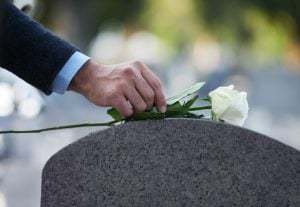For Women In The Legal Profession, It's Enough With Too Little, Too Late

(Image via Getty)
Many women lawyers’ praises have been unsung. The obituary of Eleanor Jackson Piel in the New York Times detailed all she had accomplished in her 102 (not a typo) years. She encountered sexism, racism, and other “isms” in her years.
Piel practiced law into her nineties, first here in Los Angeles and then in New York, spending many of her years as a solo. Not an easy task now, and even harder then, especially since she specialized in criminal defense. Her California bar number is in the “teens,” 18168. Now the bar numbers are well into the 300,000s.
After graduating from University of California, Berkeley, she applied to Berkeley Law, which rejected her on the grounds that “females always have nervous breakdowns.” Sound familiar? Swooning, pitching a fit, and fainting spells obviously would have precluded courtroom work. But she was not deterred, taking her 1L year at University of Southern California and then taking her last two years at Berkeley Law. She was the only woman in the 1943 graduating class.
Given the difficulties that later generations of women lawyers would have finding jobs, especially in law firms that hired women law school graduates as secretaries (Justice Sandra Day O’Connor, for example) Piel clerked for a federal district court judge in San Francisco. He didn’t hire her because he wanted to give a woman a shot, but because “she would stay there forever.” Fat chance. But the two of them worked together on a case where Japanese American internees had been indicted because they failed to report for their military draft physicals. Huh? The same country that had interned them was now criminalizing their FTAs (failures to appear). The judge quashed the indictments, and the government, in a rare show of smarts, had the sense not to appeal. Thus began Piel’s long practice of representing those who had little, if any, voice.
Although many could not understand why Piel would be a criminal defense lawyer, she thought that facing the unknown and having to think on her feet was “heaven.” I wonder how many women criminal defense lawyers would think similarly today. An article in the 2009 issue of Transcript, a Berkeley Law publication, describes just a few cases in her illustrious career:
Piel represented Sandra Adickes, a white teacher who, along with six of her Black students, sat in at a Kress department store lunch counter in Hattiesburg, Mississippi, to test the Civil Rights Act of 1964. She was denied service because she was “in the company of Negroes.” Police arrested Adickes on a “vagrancy” charge. Adickes sued Kress and lost in the lower courts, but the United States Supreme Court held in 1971 that the charge was “groundless.” Justice John Harlan Jr. held that Adickes had suffered a violation of her 14th Amendment rights.
In another case, Piel represented Cynthia Fisher, who claimed that Vassar College had denied her tenure because she was married. Although Fisher’s claim prevailed in federal district court, a federal appeals court overturned that ruling, and the Supreme Court denied review.
Piel used DNA evidence to exonerate a client facing the death penalty. Vincent Jenkins was convicted in 1992 in Buffalo for a rape he did not commit, but it took 17 years for DNA evidence to be considered sufficiently credible to free him. (And if you have never read John Grisham’s “The Innocent Man: Murder and Injustice in a Small Town,” do so. ) Piel had paid for Jenkins’s first DNA test but the results were inconclusive. Over the succeeding years, she worked with Barry Scheck of The Innocence Project to secure Jenkins’s release.
One women’s rights case involved Piel’s representation of a female student, Alice de Rivera, who wanted to go to Stuyvesant High in Manhattan, a college prep public high school. She had scored in the 99th percentile in a citywide mathematics exam. No dice, said the school, which admitted only boys at the time, but which had the advanced classes that Rivera wanted to take. In 1969, while the case was pending, the New York City Board of Education relented. It admitted a dozen or so female students and then went co-ed. It was too late for Rivera, but decades later, Stuyvesant gave Rivera, known as Alice Haines, a physician in Lewiston, Maine, an honorary degree. I wonder how she felt after all the years. TLTL?
It’s often too little, too late for many women lawyers — who through grit, determination, perseverance, and willingness to challenge authority — to receive the recognition they deserve. An obituary is TLTL. So are those “celebrations of life” when the life being celebrated is taking a dirt nap somewhere and can’t hear the accolades then being offered. Isn’t that phrase an oxymoron? Shouldn’t a life be celebrated when there is still a life? So, while it’s too late to thank Piel for her contributions to our profession, don’t lose the opportunity to honor those women who have come before us, who can still accept our thanks, and who have forged ahead in a profession that doesn’t offer much gratitude, especially to women.
The obit concludes with a story about how Ms. Piel was introduced as “the best woman lawyer in Los Angeles.” No spoiler alert here, but I hope that we are not still classifying the “best” by whatever gender. We should be way over that by now.